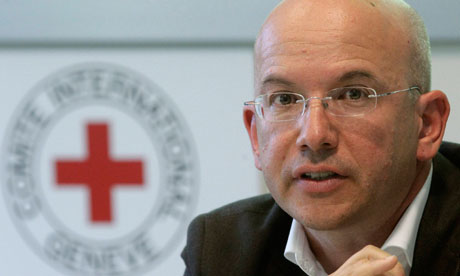 Friday, 12th August 201
Friday, 12th August 201THE roadblocks have been dismantled, the sandbags removed, and Sri Lanka is again a palm-fringed tourist paradise, the government says. But for ethnic Tamils living in the former war zone, it is still a hell of haunted memories, military occupation and missing loved ones.
Hundreds of thousands remain homeless, and no effort has been made to reunite families separated two years ago during the final bloody months of the war between the now-defeated Tamil separatists and the ethnic Sinhalese-dominated government.
A power-sharing programme the president, Mahinda Rajapaksa, promised to enact after the 25-year conflict has gone nowhere.
In the meantime, the government has worked hard to project an image of peace and redemption to the world. It insists Tamils have embraced its plan to rebuild homes and shattered lives. It is playing up the Indian Ocean island's reputation as a tourist destination, building airports, seaports and new roads. It has even ordered an army headquarters to be converted into a luxury beach hotel.
But in the ethnic Tamil heartland in the north, resentment is building.
From the school where he sleeps at night, principal Asirvatham Soosainathar watches the troops who are still living in his house in the village of Murikandy. At weekends, he visits his family in the home they have rented 50 miles away.
More than 100 families in the village were displaced by troops, and the government has promised to return their homes soon. But in two years, Mr Soosainathar, 44, has seen no evidence of it.
"I have 106 coconut trees on my land, but nowadays I have to pay for my coconut," he said. "The army has been telling me for two years that it will leave my house, but they are still cultivating my land."
Many Tamils fear the soldiers in their homes are the vanguard of a government plan to send in majority Sinhalese settlers to dilute Tamil power and prevent any new push for a separate homeland. Tamil MPs say the military is seizing land that was in private hands before the war. "The army is doing everything to be there permanently," said Suresh Premachandran, MP, of the Tamil National Alliance. "They are putting up permanent camps and are very much part of the entire administrative system in the northern province."
Electricity has been restored and roads repaired. Supermarkets, banks and internet cafes have opened in areas closed to business during the war.
But many people whose homes were destroyed continue to live under tents or in small huts covered only by tin sheets. Many families who lost their belongings and breadwinners remain in extreme poverty.
==============================================================
Red Cross brands assaults on medics in conflict zones a 'humanitarian tragedy'

Mark Tran Wednesday 10 August 2011
Violence against medical personnel in areas of unrest costing millions of lives, according to ICRC report

International Committee of the Red Cross director Yves Daccord says disregard for healthcare delivery is costing millions of lives. Photograph: Denis Balibouse/Reuters
"Violence that prevents the delivery of healthcare is currently one of the most urgent, yet overlooked, humanitarian tragedies," Yves Daccord, ICRC director-general, said in a statement. "Hospitals in Sri Lanka and Somalia have been shelled, ambulances in Libya shot at, paramedics in Colombia killed, and wounded people in Afghanistan forced to languish for hours in vehicles held up in checkpoint queues. The issue has been staring us in the face for years. It must end."
According to Dr Robin Coupland, who led research carried out in 16 countries, millions could be spared if the delivery of healthcare were more widely respected. Full Story>>>

